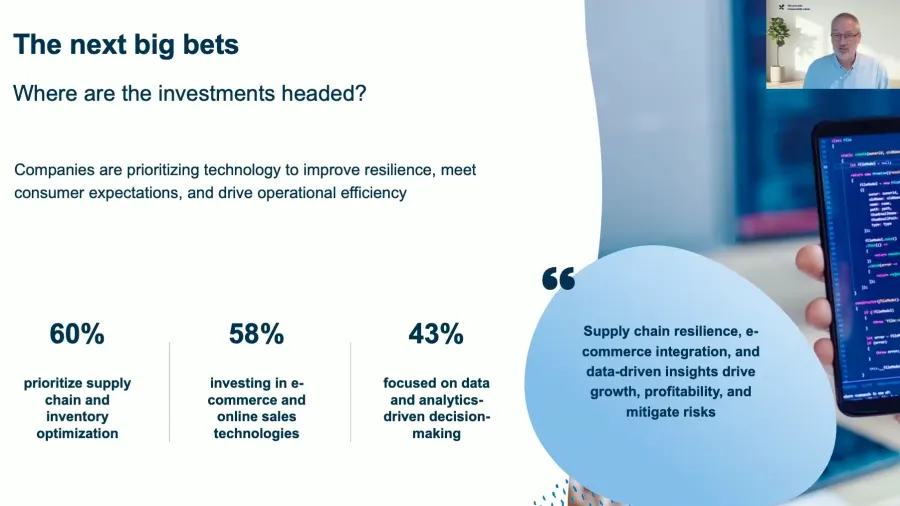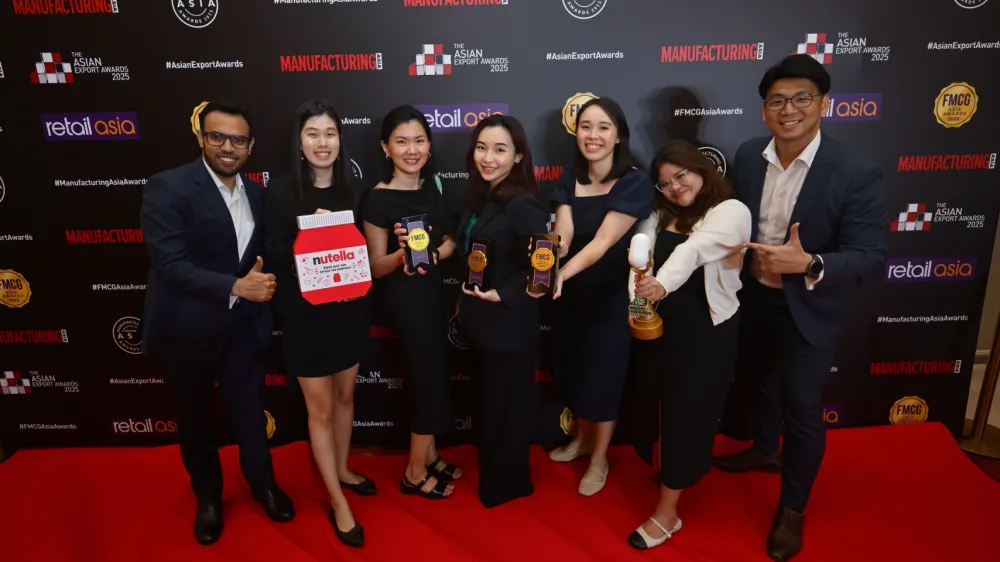
Build resilient supply chains amidst inflation and technological change
RELEX Solutions reveals how businesses balance inflation, invest in AI, and create future-ready supply chains.
Amidst growing global uncertainty, supply chain leaders are facing a complex mix of global disruptions, inflationary pressures, and shifting consumer demand. Investment in emerging technologies like generative AI (Gen AI) and predictive AI is accelerating, as businesses look to future-proof their supply chains and enable smarter, more agile decision-making.
To delve into these pressing topics, RELEX Solutions, in collaboration with Retail Asia, hosted the “State of Supply Chain 2025: Trends, Challenges, and the AI Advantage” webinar on 21 May 2025. The event brought together retail executives and supply chain professionals to explore emerging technology investment areas, disruption-proofing supply chains, adapting to inflation and rising costs, and adapting to evolving customer needs.
The session was led by Mike Taylor, Head of Presales, APAC at RELEX Solutions, and moderated by Retail Asia Contributing Editor Simon Hyett.
Taylor discussed the key findings from RELEX’s latest annual research report, State of Supply Chain 2025: Balancing Inflation, Investment & Innovation, derived from a comprehensive survey of 519 supply chain leaders across the globe. The report outlined shifting priorities for global business leaders, technology investments, and the challenges slowing their adoption.
Strategic shifts in supply chain
The survey shows a clear focus on three key areas: 60% of companies prioritising supply chain and inventory optimisation, 58% are investing in e-commerce and online sales technologies, whilst 43% are focussing on data and analytics-driven decision-making.
Amongst the most pressing challenges faced by retailers, especially in APAC, is customer volatility, given the high level of digital and social media penetration within the region as well as economic and cultural diversity in APAC. Technologies such as real-time visibility, inventory optimisation tools, in-store operations management, sensing and analytics, and collaborative planning are increasingly seen as essential to maintaining agility and meeting consumer expectations.
Whilst many retailers tend to avoid spending, Taylor pointed out that this leads to a slow burn into poorer performance. “If you want to drive success and come out of this period as a stronger organisation, then right now, it's really about looking for opportunities of how you can change your processes, get close to your suppliers, and make your supply chains resilient. Of course, a lot of that requires the use of technology to support that process,” Taylor said.
He stressed that building a resilient supply chain is no longer a luxury but a necessity. To enhance supply chain resilience, retailers are turning to a broader mix of strategies such as strengthening logistics collaboration, expanding supplier networks, and reassessing inventory levels. This marks a strategic shift away from traditional lean models in favour of more adaptable operations.
Additionally, ineffective collaboration with supply chain partners continues to be a major issue. Taylor advised that “collaboration, diverse suppliers, and a smarter inventory strategy are key to disruption-proofing the supply chain.”
Building resilience with Gen AI
Many organisations still face barriers such as budget constraints, a lack of in-house expertise, and data quality issues, prompting them to rethink their digital strategies. Given this, Taylor noted that addressing the need for high-quality data is essential for successful deployment.
“AI technologies, as they stand, work well. But they have to be fed with a good amount of data. They need to be fed with a diverse range of data in order to pick up on these things. Predictive AI works really well when the machine knows what's going on,” he added.
He also noted that emerging markets, in particular, are leapfrogging traditional methods, moving directly from manual processes to advanced solutions. At the same time, rising labour costs are pushing continued investment in traditional automation.
AI is helping companies boost customer experience, especially through predictive tools that spot patterns and trends. But success isn't just about the tech—it’s about change management and building trust in the system. He noted that Gen AI can enhance productivity, but only when it’s layered on top of solid predictive and prescriptive insights. It’s not a replacement—it’s a partner.
“We're not looking at replacing all the people, but it is about figuring out how we get humans and Gen AI technology working together to speed up the process and enhance the outcomes of their planning processes,” Taylor emphasised.
In a time of ongoing global disruption, Taylor encouraged organisations to stay agile, strengthening supplier relationships, rethinking processes, and using technology to build resilience. Explore the full report to better understand how these strategies can create lasting value within your organisation.



















 Advertise
Advertise







